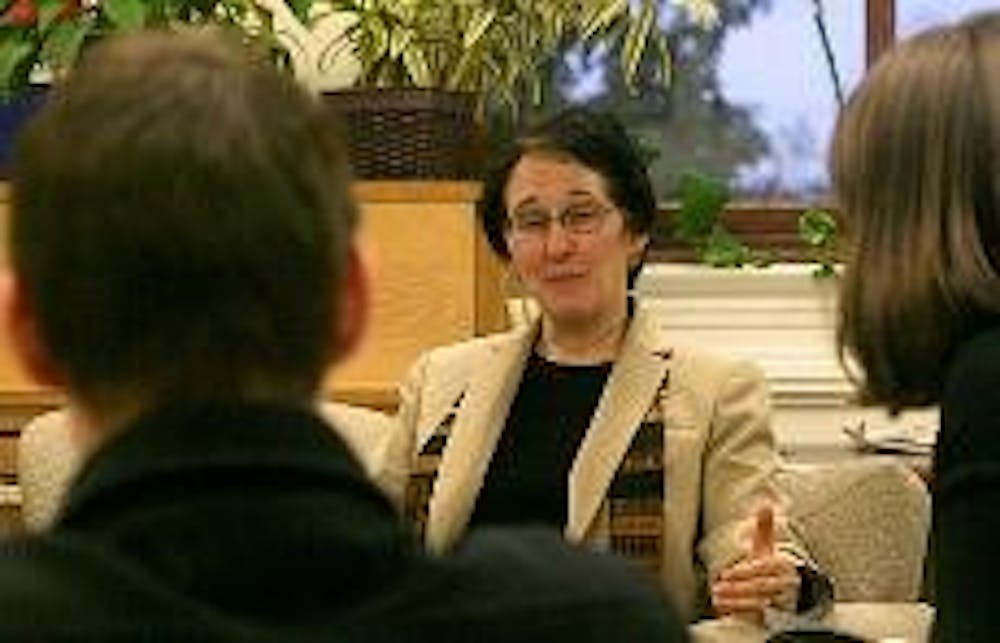New Facebook features have been designed to increase the Web site's sale potential for the future rather than to improve student communication, said language and foreign studies professor Naomi Baron at an Honors Tea Talk Tuesday evening.
Despite Facebook creator Mark Zuckerberg's claims that Facebook is "a social utility that connects you with the people around you," according to the Web site, Baron said Zuckerberg's implementation of new features such as the Newsfeed and Mini-feed, as well as his decision to make Facebook available to non-students, only point to one concern - making a profit.
The new layout is designed to make ads more visible, Baron said.
"You change the stimulus, and suddenly you get someone's attention," she said. "He's trying to get you to read his ads."
Opening the site to more people and increasing Web traffic will make Facebook more sellable, Baron said. Showing the moneymaking potential of the Web site is important in attracting buyers.
"This is a big network. It costs [something to] somebody," she said. "The point is to make money."
According to a BusinessWeek article published last March, Zuckerberg hopes to make $2 billion on the sale of his Web site. While the figure seemed laughably large at the time, Google's recent $1.65 billion purchase of YouTube shows that it's no longer so unreasonable.
Zuckerberg's focus on adding to his pocketbook could cost students jobs, Baron said. Students who use the site should take more privacy precautions to avoid having their profiles viewed by employers, who can now freely use the site, Baron said.
Many students said they felt Facebook had been devalued by going public. Several described the Newsfeed and Mini-feed features as "creepy" and "over the top."
"Networking sites like MySpace have been around for awhile," Baron said. "Somehow, Facebook was viewed as above that. Now [that anyone can join], the sites are beginning to blend."
Though there were many complaints about the new Facebook features, students still acknowledged some of the site's useful qualities. The ability to find classmates' contact information and the easy contact with high school friends make Facebook useful, students said.
The site's potential for time-wasting was also recognized.
"It's a fantastic procrastination tool," said R.J. Petersen, a sophomore in the College of Arts and Sciences. "I'll find myself on there and I don't know why. I just sort of mindlessly click."
Baron also drew attention to the appeal of informality on Facebook, quoting a student response to a student survey on Facebook she conducted last year.
"You can be social with less pressure," the student said. "Facebook is like alcohol. It facilitates what might happen [without actual contact], otherwise it might be too awkward."
Whether students are Facebook addicts or not, Baron said the most important thing for them is to keep their own security - and Zuckerberg's financial motivations - in mind.
"What is the system? Who benefits?" she said.





